Robin Wright
- 1975

Fellowship Title:
- The Dismantling of Portugal's African Empire
Fellowship Year:
- 1975
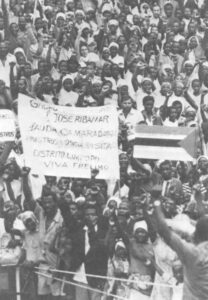
Spreading The Revolution: The First Task Facing Independent Mozambique
On the eve of independence Mozambique faces almost overwhelming domestic problems: underdeveloped agricultural system, a shortage of schools and health facilities due to the mass exodus of 103,000 Portuguese, a $950 million external debt, and an acute shortage of foreign exchange. Which task gets top priority? And how fast can the new government overcome these problems? Robin Wright recently became the first foreign journalist to travel with tits Prime Minister and several members of the cabinet as they toured the country and revealed the answers to these questions. What follows is an account of the type of meetings held throughout the four-day tour. Xai Xai, Mozambique The crowd, 11,000 strong, had been waiting, standing, for almost three hours, many having walked over 20 miles to hear what the new leaders of Mozambique had to say. As Prime Minister Joaquin Chissano reached the open platform it started to pour, but no one moved. “Who has the power?” the energetic figure called to the crowd, ignoring the rain. “The people,” the crowd called back, smiles breaking
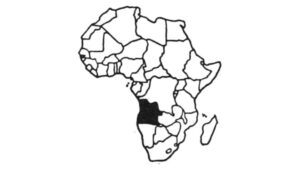
Angola’s Dogs of War
The word “mercenaries” elicits images of thuggish killers, money-hungry, daring soldiers of no principle who truly fit the “Have Gun, Will Travel” slogan. The legend of these soldiers of fortune — widely publicized for their activities in the Congo, Biafra, Yemen, Algeria and other hot spots — was recently revived in Angola where mercenary forces joined the bitter civil war on behalf of the two pro-western liberation factions: the National Liberation Front and the Union for Total Independence. Robin Wright went into northern Angola with FNLA President Holden Roberto and spent four days with the British “dogs of war” who made a last-ditch effort to save the FNLA from the rapidly advancing columns of the Russian and Cuban-backed Popular Liberation Movement. In the following report, Wright offers a first-person account of her experience with the mercenaries and the fall of the North. San Antonio do Zaire, Angola If I hadn’t lived through it, I’m sure I’d never believe it. Few dramas have ended in such tragedy. Few comedies have contained such pathetic slapstick. And
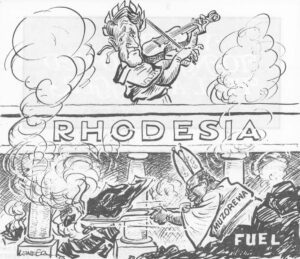
Propoganda: The Other Rhodesian War
“Rhodesia faces its final hour.” “The Armageddon is on.” “The blindness of Rhodesia.” With those alarming words, the world press has headlined its view that white domination in the rebellious southern African colony is just about over. Yet the government of Prime Minister Ian Smith is not willing to concede that black majority rule is inevitable. In fact, quite the contrary. Rhodesia has launched two major campaigns to combat the impact of the estimated 12,000 guerrillas based in neighboring Mozambique: a full-scale call-up of all males between 18 and 35, and a fierce propaganda campaign to boost morale among the 280,000 whites — outnumbered 22:1 by Africans. Robin Wright recently visited Rhodesia to assess the mood of the country as the guerrilla war escalates. The following report looks at the propaganda effort and its impact on the minority white community. Salisbury, Rhodesia The sedate bar on Salisbury’s main avenue had suddenly taken on a festive air with the addition of bright stickers on the dark wood walls, tables, bar stools and cash register. But
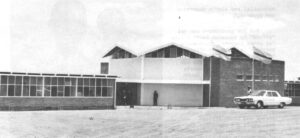
Botswana: “Island” of Hope
Within the volatile southern African subcontinent — where war, racial tension and political and economic problems compete for headlines — there is only one country comparatively problem-free. A non-racial, potentially wealthy and politically stable nation, Botswana is the only state that is prospering without pressure or without tension in this troubled territory. Yet, for all its success, the former British protectorate is also the most unheralded country in southern Africa. And, considering that this massive territory was recently judged the most democratic state in Africa, it may rank as the most unheralded country on the continent. Robin Wright recently visited Botswana and offers the following assessment of The Exception to the trend of events in the southern subcontinent. Gaberone, Botswana The southern African subcontinent is currently plagued with problems: South Africa’s racial tension. Rhodesia’s decade-old constitutional crisis. Angola’s bitter civil war. Mozambique and Zambia’s severe economic struggles. And Namibia’s campaign for independence. Yet within this volatile territory there is one country without racial problems or political traumas, where the economic potential has led to
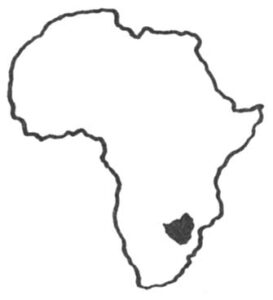
Rhodesia’s “Protected” Blacks
One of the forgotten factions in the current phase of Rhodesia’s constitutional crisis is the African living in the “sharp end” — the zone where terrorists have been sporadically active since December, 1972. Some 100,000 black Rhodesians live in this northeast border area and have had to face two ugly alternatives during the past three years: support the guerrillas and face retribution from the government, or support the white government and face retribution from their own people. Over the past eighteen months the government of Prime Minister Ian Smith has acted to enforce a decision in its favor by establishing “protected villages” camps surrounded by barbed wire and guarded by the Rhodesian army. Most of the Africans in the north have now been relocated into these new villages and are cultivating their first crops. Robin Wright recently flew to the “operational zone” in the North and toured the facilities. Based on interviews with field workers, families in the kraals (villages), army and government officials and black nationalists, Wright offers the following assessment of Rhodesia’s latest
